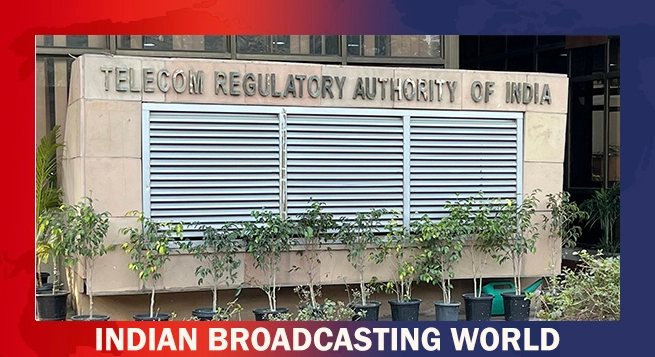The Telecom Regulatory Authority of India (TRAI) yesterday said that Indian media and entertainment sector stakeholders would be given seven more days for making any additional submissions on a consultation paper on a proposed National Broadcast Policy (NBP).
The revelation came during an Open House Discussion (OHD) organised by TRAI yesterday on the NBP where quite a few of the participants bemoaned that time given for making submissions was inadequate and the regulator should not attempt to rush through consultations on such an important piece of proposed legislation.
Midway at the open house, TRAI’s Principal Advisor (Broadcasting & Cable Services) Syed Tausif Abbas told participants, who were making noises about “lack of enough time” on submissions, that “additional comments” can be submitted for which seven more days would be allowed by the regulator.
So, additional inputs on NBP can be given to TRAI by May 22 by stakeholders.
Till now, TRAI has received over 40 submissions, all of which have been posted on the regulator’s website and highlight varied and disparate views on issues such as whether OTT platforms should be regulated; whether there’s a level playing field amongst various content distribution platforms; whether lack of data hobbles effective policy making and regulations and whether a policy document on broadcasting should include sectors like online gaming, amongst others.
According to some people who attended the OHD, the TRAI team had to clarify at various stages that its role — in contrast to what was being assumed and stated by stakeholders at the open house — was recommendatory and limited to giving inputs to the Ministry of Information and Broadcasting (MIB) and the federal government on the NBP.
“…it’s for MIB to decide what all to include in the NBP,” Abbas weighed in when several speakers berated TRAI for wading into areas that were outside its jurisdiction.
Participants were of the opinion that there was a clear divide at the OHD: the distribution platforms (like DTH platforms, MSOs) wanted streamers to be regulated, while the broadcasters and OTT platforms (represented most of the time via industry associations) were against such a move under the proposed NBP as it would kill a fledgling content sector and defeat the government’s various policy initiatives to make India a content hub and an attractive destination for investments by easing norms for doing business.
Interestingly, the consumer activists present at the OHD, according to participants, wanted almost everything to be brought under regulations, including OTT platforms, content, TV channels’ prices, etc .
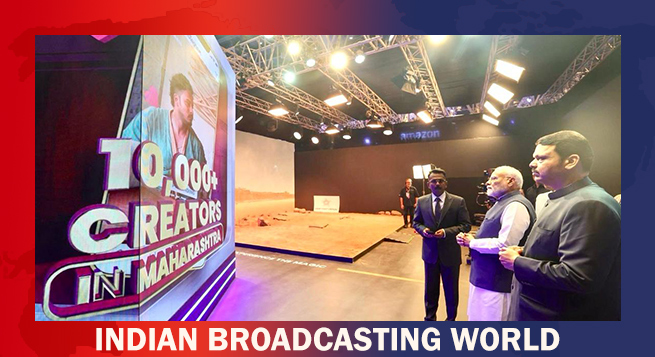 MIB to unveil M&E sector statistical handbook today at WAVES
MIB to unveil M&E sector statistical handbook today at WAVES 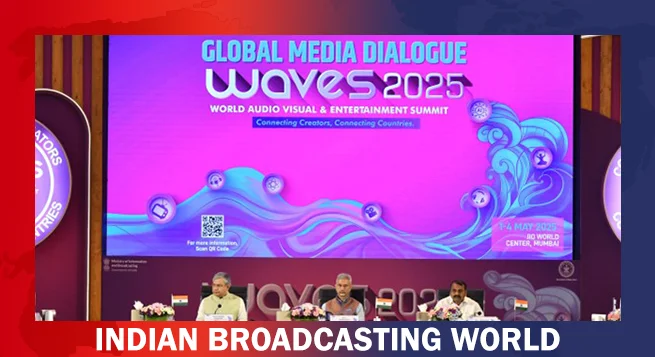 WAVES 2025: Media dialogue backs creativity, heritage & ethics in AI Era
WAVES 2025: Media dialogue backs creativity, heritage & ethics in AI Era 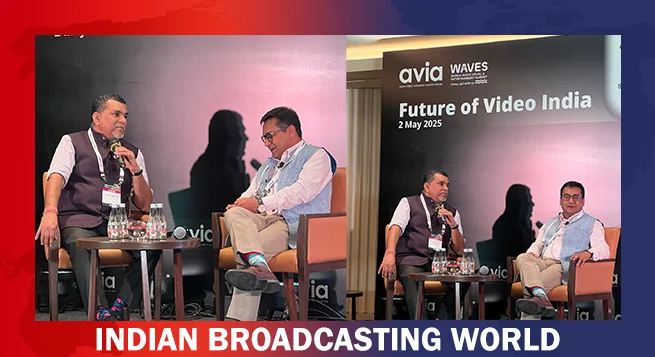 Pay TV leaders chart course for India’s linear TV in digital age
Pay TV leaders chart course for India’s linear TV in digital age 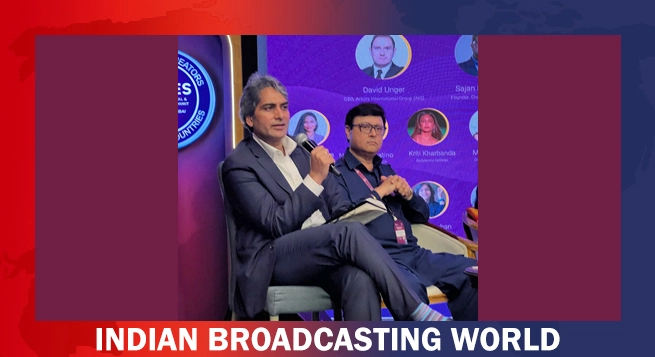 Sudhir Chaudhary announces new show for DD News, says “Good content still has a place” at WAVES 2025
Sudhir Chaudhary announces new show for DD News, says “Good content still has a place” at WAVES 2025 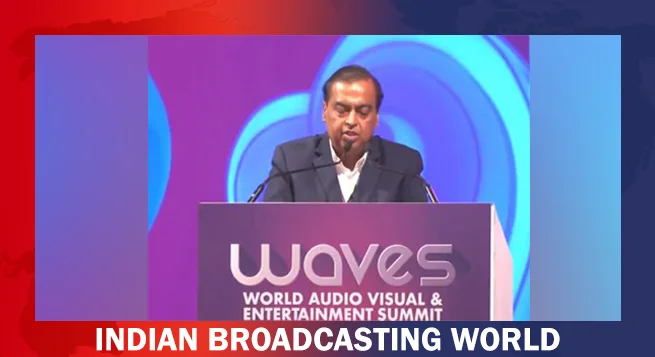 India can lead global entertainment revolution: Mukesh Ambani
India can lead global entertainment revolution: Mukesh Ambani 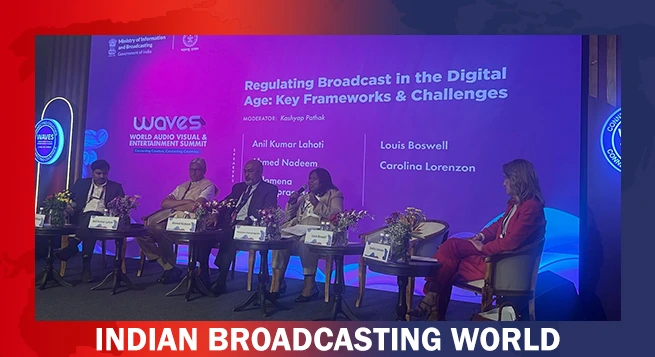 TRAI chief not in favour of separate rules for OTT, legacy b’casters
TRAI chief not in favour of separate rules for OTT, legacy b’casters 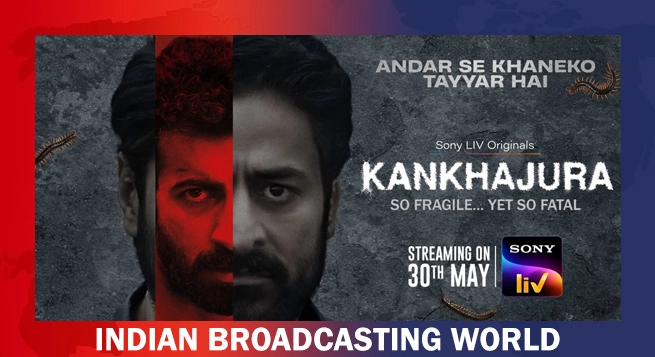 ‘KanKhajura’ start streaming on Sony LIV from May 30
‘KanKhajura’ start streaming on Sony LIV from May 30 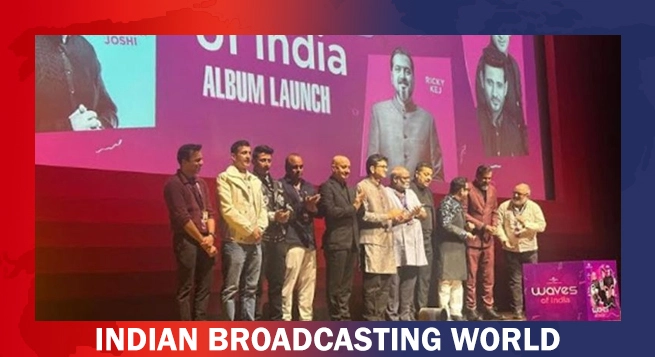 Koyal.AI debuts at WAVES 2025, set to revolutionise music videos with GenAI
Koyal.AI debuts at WAVES 2025, set to revolutionise music videos with GenAI 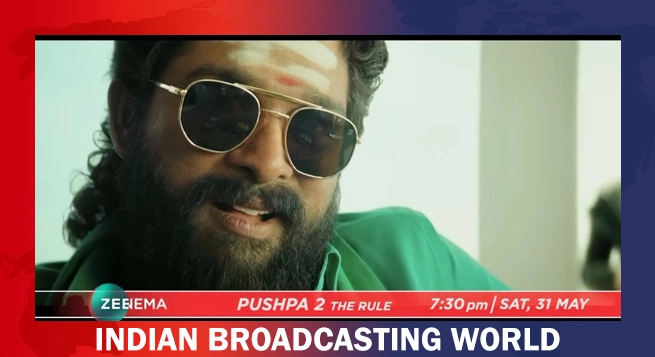 Zee Cinema to premiere ‘Pushpa 2: The Rule’ on May 31
Zee Cinema to premiere ‘Pushpa 2: The Rule’ on May 31 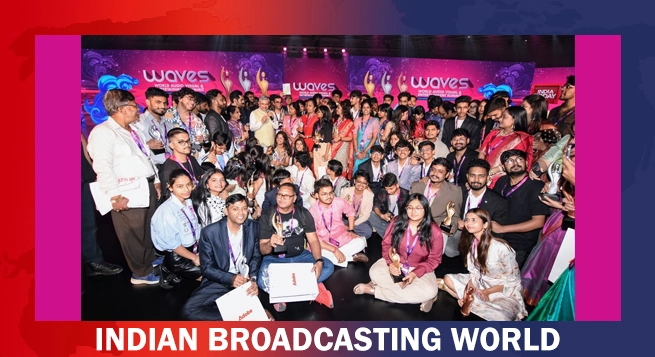 ‘Create in India Challenge’ S1 honours global talent at WAVES
‘Create in India Challenge’ S1 honours global talent at WAVES 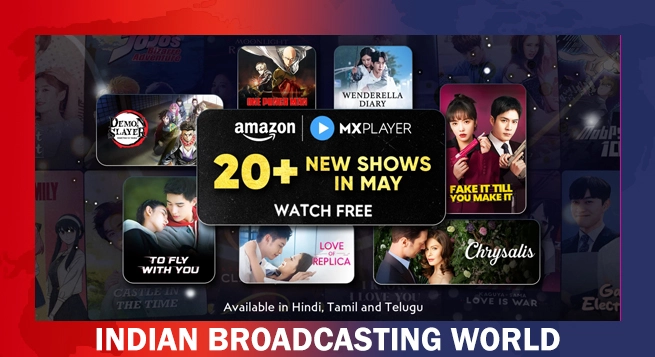 Amazon MX Player adds 20+ dubbed international titles
Amazon MX Player adds 20+ dubbed international titles 


